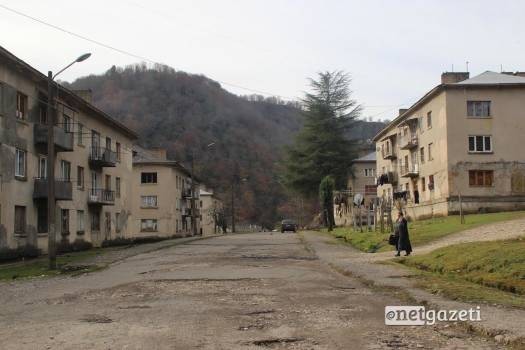საერთო ცხელი ხაზი +995 577 07 05 63


The Center for Social Justice, based on a citizen appeal, examined the quality of social security of persons with a neutral identity card and believes that in order to be more effective in protecting the dignity and basic social needs and rights of people in the occupied territories, it is essential to expand neutral citizenship services so that it includes all major programs and warranties available for Georgian citizens. We call on the state to take additional steps for the welfare and equal access to social guarantees of the people living in the occupied territories.
The study of the issue shows that persons with a neutral ID card are not fully equal in terms of rights with the citizens of Georgia.
The ID card holder has access to:
However, they do not have access to state social services and guarantees such as:
The integration of the population living in the occupied territory of Georgia and the provision of their legal guarantees is a positive obligation declared by the state policy and national legislation, in accordance with the relevant international norms. One of the main goals of the State Strategy “Occupied Territories - Involvement through Cooperation” is to strengthen the existing mechanisms for the protection of basic human rights in Abkhazia and the Tskhinvali region / South Ossetia and to integrate them into Georgia's social protection and benefits system.
In response to the above commitment, in 2011 the Government of Georgia prepared a package of legislative changes aimed at identifying persons living in the occupied territories and improving their legal status. From the same year, the issuance of a neutral ID card began. The mentioned document confirms the identity of the person and his / her legal place of residence on the territory of Georgia. Neutral identity cards can be obtained by persons legally residing in the Autonomous Republic of Abkhazia and the Tskhinvali region.
According to the LEPL State Services Development Agency, a total of 246 neutral ID cards have been issued since 2016, mostly to the people living in Sukhumi and Ochamchire.
Obtaining a neutral identity card and access to related social and legal support was a fair and progressive step taken by the government, although at this stage it is essential to further strengthen this practice and include additional social security guarantees and programs.
The severe humanitarian crisis of the population in the occupied territories and the systematic violation of their rights have been going on for years. The situation was exacerbated by the pandemic caused by the spread of COVID-19, which, as needs increased, clearly demonstrated the social and economic vulnerability of the above-mentioned population. In response to the current dire situation the government agencies do not, even in cases of individual appeal, make decisions within their discretion on the individual social support of persons with neutral identity cards who are particularly vulnerable.
A person has the right to have a minimum standard of living, which is directly related to his/her right to dignity, life and self-development. The provision of the human right to enjoy social assistance, to receive cash and non-cash benefits if necessary, to have adequate shelter, adequate housing, to enjoy other benefits, and so on - is a positive obligation of the state and the realization of this right can not be related to the type of identification document and / or legal address of the person.
Such an approach removes not only the real social value and impact of a neutral identity card, but also the political content it may have for reconciliation and peacebuilding policies.
The website accessibility instruction